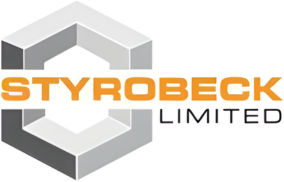Lightweight and easy to cut, polystyrene sheets are an excellent choice for insulation. Made from EPS, an inert and organic material, these sheets resist rot and, when properly installed, can last for the entire lifespan of a building.
We offer five grades of polystyrene, all meticulously manufactured to meet the AS 1366 Part 3 1992 standard, ensuring top quality and reliability for your projects.
Flexible Sizing Options
- Standard Sheet Size: 2500 x 1200 mm, providing coverage of 3 square meters per sheet.
- Custom Sizes: Sheets can be cut to sizes up to 5000 x 1200 x 500 mm, or divided into multiple pieces to match your exact requirements.
Choose our polystyrene sheets for durable, versatile, and highly effective insulation solutions tailored to your needs.
Technical Resources
1. What are polyboards made of?
Polyboards are typically made from expanded polystyrene (EPS), a lightweight and rigid material. EPS is created by expanding tiny beads of polystyrene, which are then fused together to form a solid, durable board.
2. What are the benefits of using polyboards?
• Lightweight: Polyboards are easy to handle and transport, reducing labor costs during installation.
• Durability: They are resistant to impacts and moisture, ensuring long-term use without significant wear.
• Thermal Insulation: Polyboards offer excellent insulation properties, helping to regulate temperature and reduce energy costs.
• Moisture Resistance: Polyboards are water-resistant and will not rot, making them ideal for use in environments where moisture exposure is a concern.
• Versatility: Can be used in a variety of applications, including construction, insulation, and packaging.
3. What are polyboards commonly used for?
Polyboards are widely used in the following applications:
• Insulation: For walls, roofs, floors, and foundations in both residential and commercial construction.
• Packaging: As protective layers for fragile items or as a part of shipping materials.
• Concrete Formwork: Polyboards can be used as void formers or for creating molds for concrete.
• Construction: For creating lightweight, insulated barriers or boards for various structural applications.
4. How do polyboards help with insulation?
Polyboards are excellent thermal insulators due to the air pockets within the material, which help to trap heat and prevent heat transfer. This makes them ideal for insulating buildings, walls, roofs, floors, and even under-slab insulation.
5. Are polyboards environmentally friendly?
While polyboards themselves are made from non-biodegradable EPS, they are recyclable. Many EPS products, including polyboards, can be reused or recycled, reducing their environmental impact. Check with local recycling facilities for the best disposal and recycling options.
6. How are polyboards installed?
Polyboards can be easily cut to size and installed using basic tools like a utility knife or saw. Depending on the application, they may be glued, nailed, or fixed into place. For insulation, polyboards are typically installed between studs, under floors, or in other areas where thermal protection is needed.
7. Are polyboards fire-resistant?
Polyboards are generally not fire-resistant in their raw state. However, some polyboards are treated with fire-retardant chemicals to improve their fire resistance. Always check the specifications and certifications of the polyboard for fire ratings.
8. Can polyboards be used outdoors?
Polyboards are suitable for outdoor use, especially in construction applications like foundations, under slabs, and in exterior wall insulation. However, if exposed to direct sunlight for prolonged periods, the material can degrade. In such cases, it should be covered with a protective layer or coating.
9. Are polyboards moisture-resistant?
Yes, polyboards are moisture-resistant and will not absorb water like some other materials. This makes them ideal for applications in damp or wet environments, such as under-slab insulation, foundation insulation, or as part of concrete formwork.
10. How long do polyboards last?
Polyboards are designed to be long-lasting, especially when used in applications like insulation and formwork. They will not rot, degrade, or break down over time under normal conditions. However, like any material, their lifespan can be affected by environmental factors such as extreme heat or UV exposure.
11. Can polyboards be customized?
Yes, polyboards can be customized in terms of size, shape, and thickness to meet the specific requirements of a project. Many manufacturers offer cutting and fabrication services to produce custom-sized polyboards for various applications.
12. How do polyboards compare to other insulation materials?
Polyboards offer a good balance of cost, insulation properties, and durability compared to other materials like fiberglass or foam board. They are typically lighter, more affordable, and provide effective thermal insulation, making them a popular choice for both residential and commercial projects.
13. Are polyboards safe to handle?
Polyboards are generally safe to handle as they do not have sharp edges or hazardous materials. However, as with any insulation product, it’s recommended to wear gloves and protective gear when cutting or handling polyboards to avoid skin irritation or injury.
14. Can polyboards be used in high-load applications?
Polyboards are generally not designed for heavy load-bearing applications. They are ideal for insulation, protection, and structural applications that do not require significant weight-bearing capacity. For heavy-duty applications, other materials like concrete or steel may be required.
